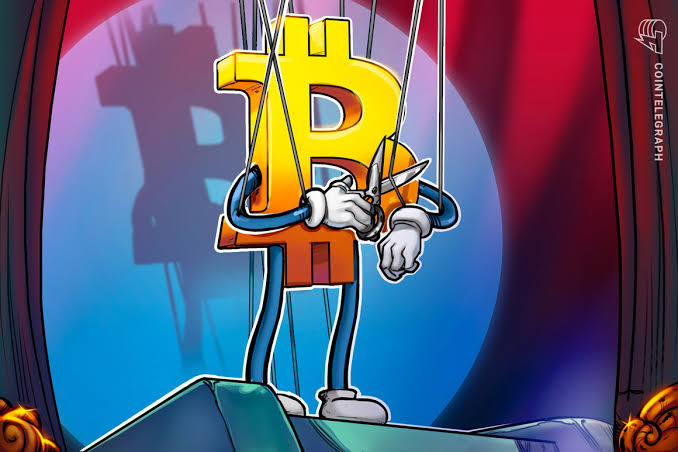Establishing a more flexible financial system, why crypto is already a huge success

I imagine that out of a 100, at least 80-90% of people invested in crypto assets would say "to replace fiat currencies and the banks" when asked: what is crypto's ultimate goal? But is that it?
There's something we ought to understand about the business and finance space and that is the fact that a series of events can largely conflict the process of change within a network or market and this doesn't reflect a pre-established will to fuel conflict, simply something that takes effect on its own.
For example, Substack was never trying to replace Twitter(now simply called my X) , it was simply building more features to its ecosystem but Elon and Twitter felt threatened and an unhealthy competition was born, leading to several thoughtless actions proving the conflicted minds of the Twitter ecosystem following the developments on Substack.
Crypto vs Banks vs Fiat Is a toxic competition
No crypto project should aim to compete with the banks, to replace them even or to beat fiat at whatever game, all these things are not important, that victory dance of succeeding will not have crypto's ultimate goals written all of its dancing shoes because the journey would have lacked the various crypto quests accomplished.
How so?
Competing with the banks and fiat would make a crypto project prioritize profit over privacy and value.
Competing with the banks and fiat would make a crypto project prioritize control over flexibility.
Competing with the banks and fiat would make a crypto project fall into centralized.
Network sovereignty will not be accomplished because the same set of people within the banking and fiat system will end up running these crypto projects and the consensus mechanisms of the ecosystem will be bent to suit the governing models of the banks and that of fiat.
It is really inevitable because as we all know, the only competition one should have should be oneself, it's cool to look at other networks, projects, products, services, systems, just whatever but not to compete but to acknowledge their value structures and to pay attention to their flaws and poorly designed structures, learn from their mistakes and purposeful bad structures thus build alternate and working solutions to this problems, this was the case with bitcoin and not a lot of people realize it.
Bitcoin never said money shouldn't be printed, it said it should but it should cost something so it would be used properly.
Bitcoin was never opposed to changes thus its structures are not built on stone but flexible enough to allow for the network to participate in the voting process to reach a consensus to develop newer layers of security and whatever else deemed fit.
Ultimately, bitcoin understood the importance of changes in business and finance, it understood the need for economic expansion and designed this to be an incentivization layer. It was all new tech tackling old flaws, not new projects trying to displace current systems whilst playing the exact same game, it makes no sense.
If you look closely at social media platforms for example, this is also why many are not growing, they all simply trying to displace these old structures without offering anything new, no problem solved in any way, just a copy of the old system competing with the system to move value onto their own ecosystem with equal and sometimes even less benefits.
Did you know that there so actually so many social media alternatives to Facebook, Instagram, WhatsApp, Messenger, TikTok, YouTube and Twitter(X)?
But nobody knows them because there's nothing to know, it's same old crap structures.
Does it make sense? I'm sure it doesn't.
Establishing a more flexible financial system is crypto's ultimate goal and it is already a smashing because crypto is decentralized and decentralization enhances flexibility, something lacking within traditional finance, also, crypto is globally accessible, it isn't limited by borders due to its simplicity of design when looking at how blockchain manages data, ultimately how it moves and stores it. Reduced transactions cost, ownership and control, 24hrs market availability, transparency, immutability of records and smart contracts.
All of these things contribute to the current flexibility of cryptocurrencies and assets, smart contracts make way for value programmability, which is why crypto is called programmable money. So yes, crypto has been a success and the current interest in tokenization of traditional assets is one pointers to the success and value of this ecosystem.
Posted Using LeoFinance Alpha